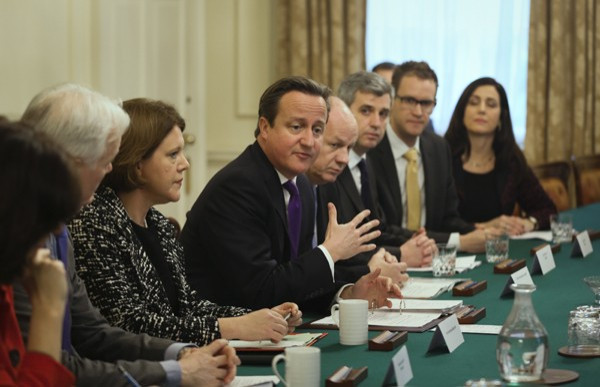Maria Miller's Demise Was Inevitable Once Affair Knocked at Cameron's Door

There was a grim, almost weary inevitability about the eventual fall of disgraced culture secretary Maria Miller.
It was bad enough that she overcharged on her expenses, it was worse that she tried to obstruct the inquiry into her finances, and it was worse still that she showed near-contempt for parliament, the standards watchdog and, crucially, the voters with her 32-second apology.
But what proved fatal for Miller, as it has for others before her, was the simple fact that the affair came knocking on the prime minister's door putting his judgement under the microscope.
There was the same predictability about David Cameron's reaction, which was to offer unstinting support for his beleaguered minister. Until the moment he didn't.
That moment came at some point on Tuesday when the full extent of the anger from voters, Tory activists, MPs and even some government ministers hit home. Miller and Cameron talked, and by Wednesday morning she was gone with the usual exchange of supportive letters.
As she also declared in interviews, the affair was distracting attention away from the government's good news story on the economy and getting in the way of its work.
The simple cry from the public which prompted the inevitable was: "They still don't get it."
Five years after the original, devastating MPs expenses scandal, all the public could see was someone still "at it", and that was tainting the entire parliament.
The fact she had been cleared of the original, more substantive charge of fiddling her expenses, driven by Labour's John Mann, was neither here not there. There was enough in the report into her behaviour to cast a very long shadow over her future, and the way she reacted to it set the seal.
Those MPs who came into the Commons in 2010 committed to higher standards, as promised by Cameron, and believing they were free from the smell of the scandal, were furious that they were now all being lumped in with the wrongdoers and criminals who went before them.
We will probably never know for sure whether Cameron ushered Miller out or whether she chose to leave herself. Either way, the PM was doubtless keen to avoid a bruising Commons question time followed by an equally challenging meeting with his own MPs on Wednesday.
It is almost irrelevant. Any MP with even the least sensitive antennae would have realised, after days of attempting to duck out from under, that the game was up.
Mark Harper's decision to quit as immigration minister in February, when it was revealed he was employing a cleaner who did not have permission to work in the UK, has now almost faded from the public's consciousness.
Had Miller reacted in a similar way, accepting her punishment gracefully and perhaps offering to resign straight away, she may have preserved her reputation and spared Cameron and the Tory party's blushes.
Unfortunately for Cameron, and even parliament as a whole, the damage has now probably been done to MPs' reputations.
In the run-up to Miller's resignation there were allegations she was being singled out in a media witchhunt because of her handling of the Leveson recommendations, which she dismissed. There were also suggestions MPs opposed her because she was responsible for introducing equal marriage.
She also had a reputation as a difficult individual who did not make friends easily.
There will be recriminations, not least the whole issue of how MPs expenses are overseen and investigated is now up for review. There will also be those who will believe the media has claimed a scalp and will want revenge.
But there are very few in Westminster who will not accept the argument that Miller brought this on herself.
© Copyright IBTimes 2025. All rights reserved.






















